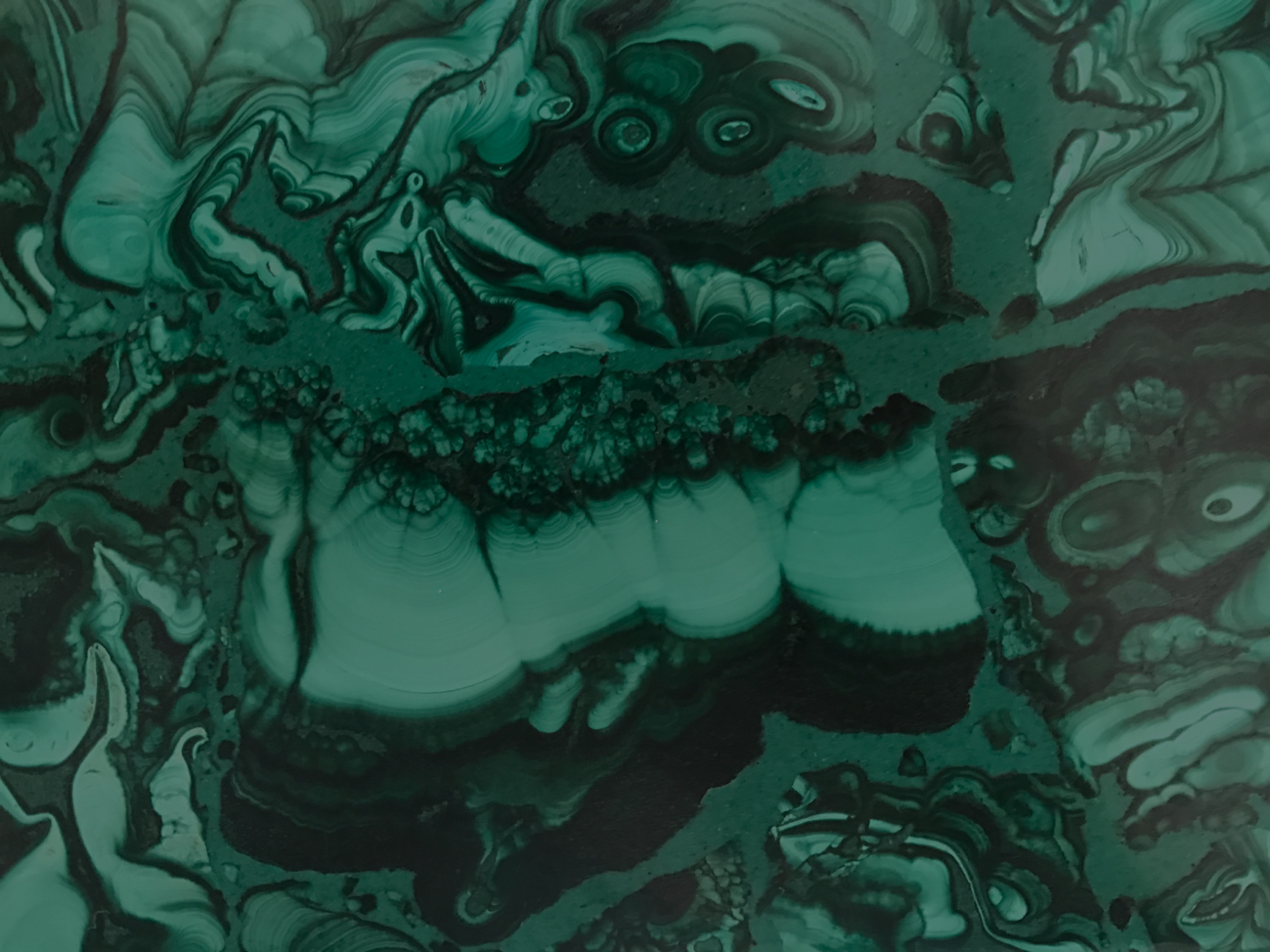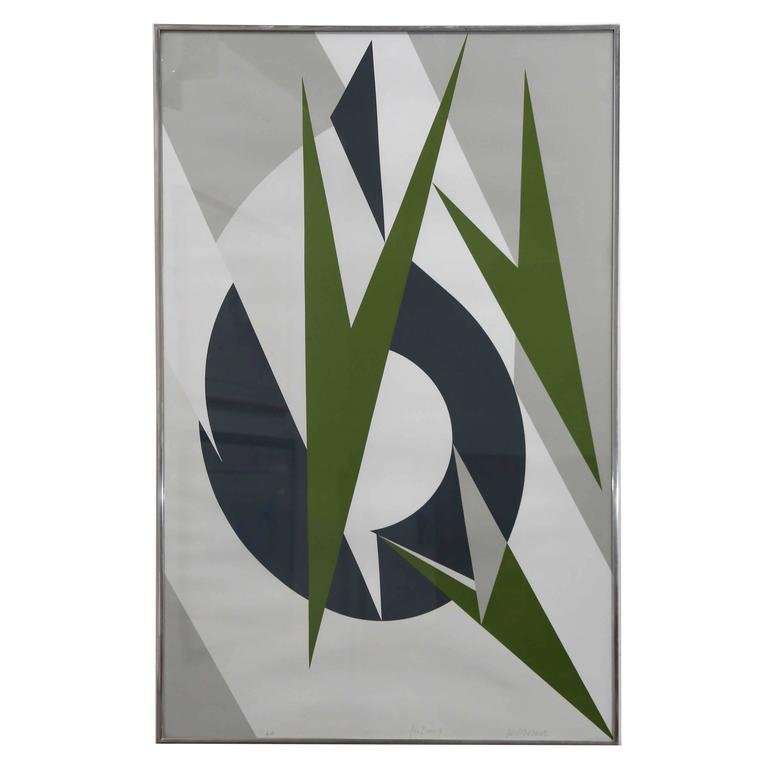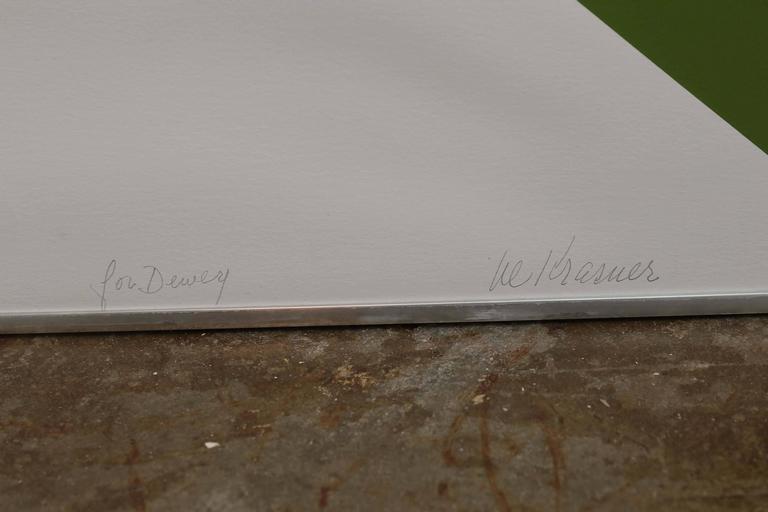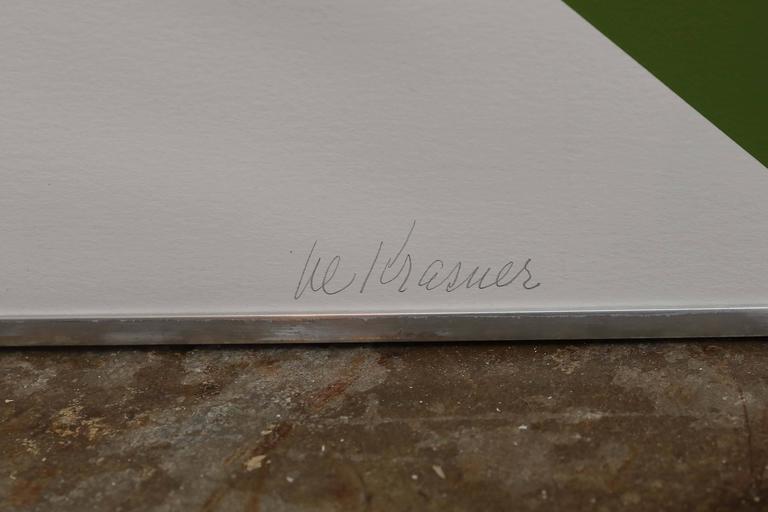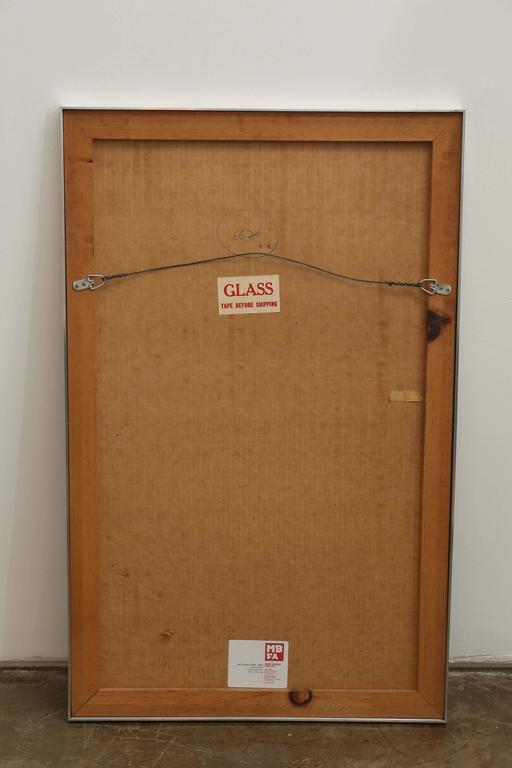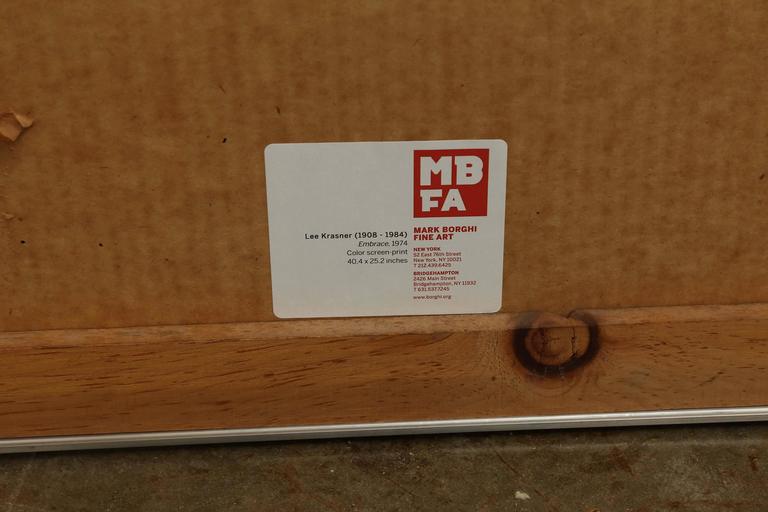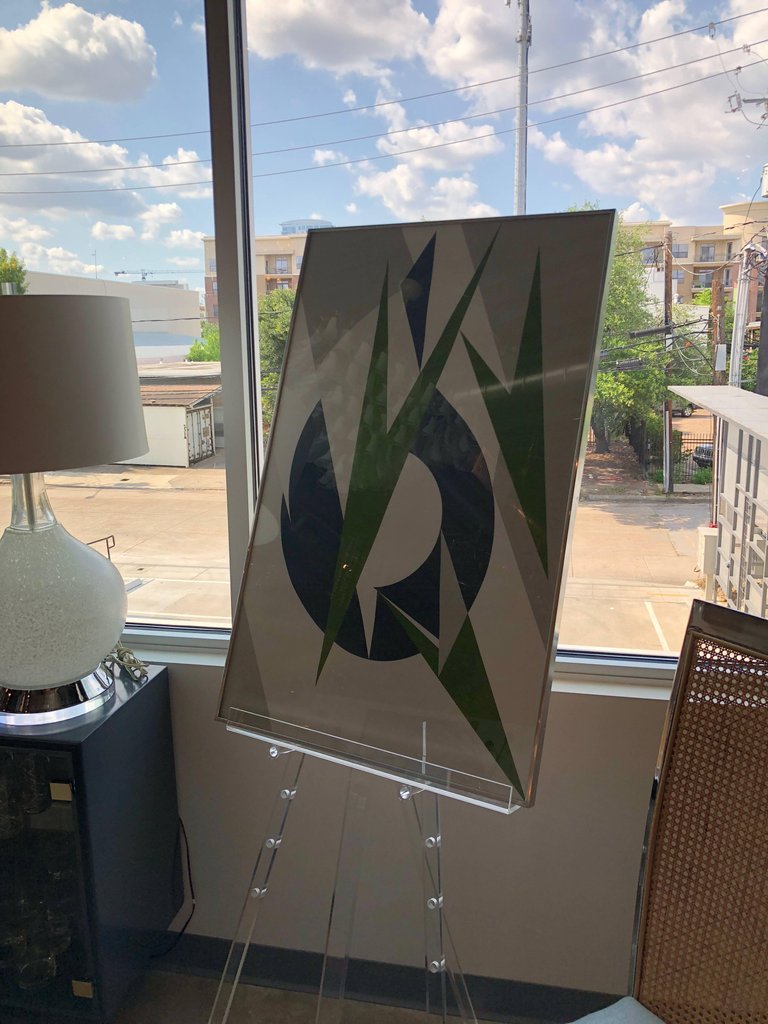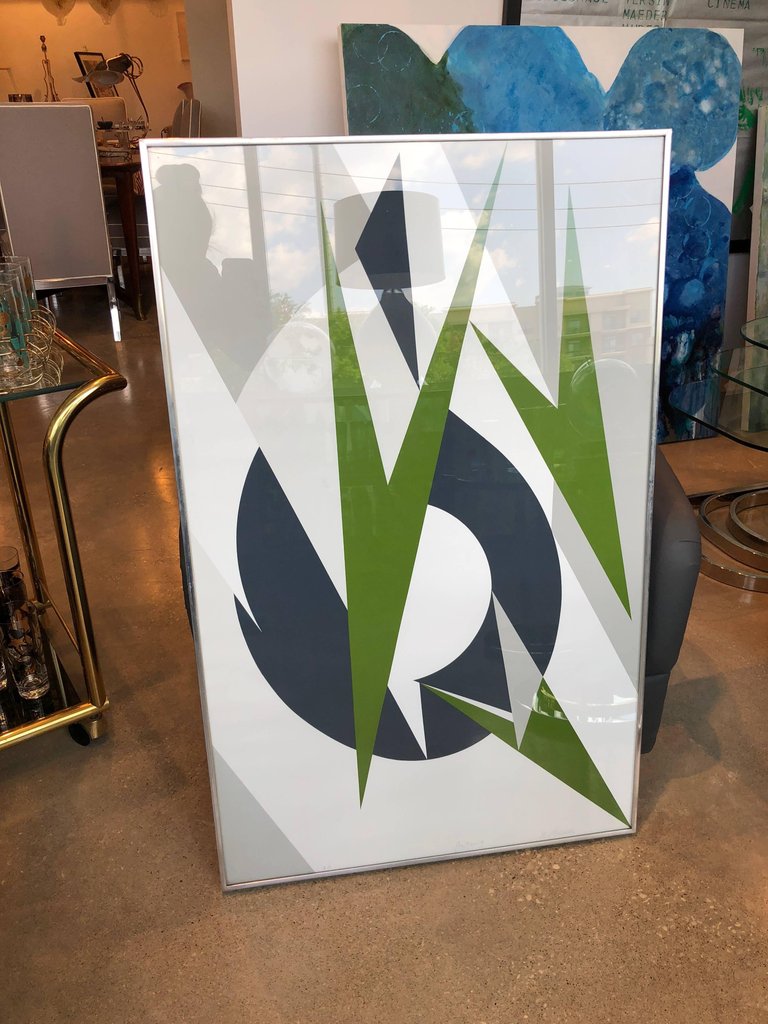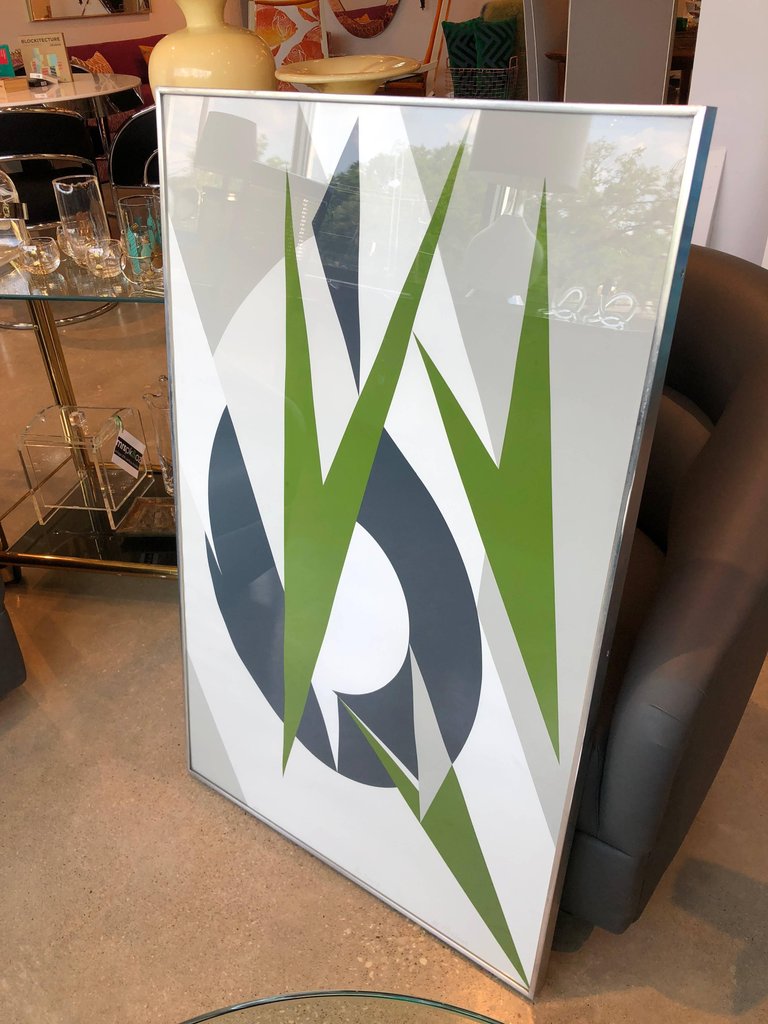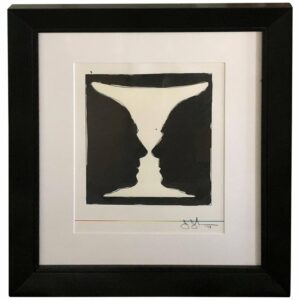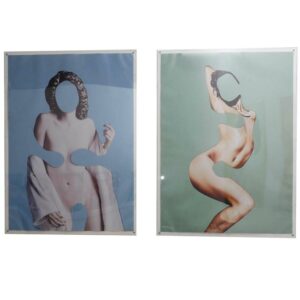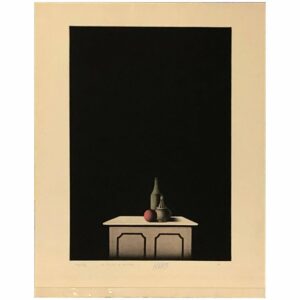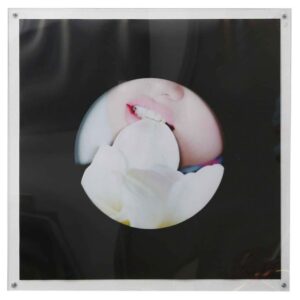Offered is a artist’s proof print entitled “Embrace” by Lee Krasner with an inscription to John Dewey. The offered artist proof is signed in pencil L/R, edition in pencil L/L, inscribed in pencil “For Dewey” L/C (perhaps the great American philosopher, John Dewey who was closely associated with the early female abstract expressionists). The piece retains gallery label for “Mark Borghi Fine Art” on back. The piece is framed in a contemporary aluminum frame.
Lenore Krasner, “Lee” Krasner (1908–1984), was an American abstract Expressionist painter in the second half of the 20th century. Known mainly during her art career for her relationship with Jackson Pollock, recent critical writings have shown that Krasner was one of a small minority of American female abstract Expressionist, who currently, is getting the recognition that she deserves. She is one of the few female artists to have had a retrospective show at the Museum of Modern Art.
Krasner, however, was her own worst critic. She would commonly revised or completely destroy entire series of works due to this critical nature. As a result, her surviving body of work is relatively small. Her catalogue raisonné, published in 1995 by Abrams, lists 599 known pieces.
Krasner attended the Women’s Art School of Cooper Union on a scholarship and continued on with her art education at the illustrious National Academy of Design, completing her course load there in 1932. In the 1930s, she began studying modern art through learning the components of composition, technique, and theory. This initial investigation into modern art formed her work throughout the rest of her career.
She began taking classes from Hans Hofmann in 1937, which modernized her approach to the nude and still life. Krasner is identified as an abstract Expressionist due to her abstract, gestural, and expressive works. Her medium was in painting, collage painting, charcoal drawing, and occasionally mosaics. She would often cut apart her own drawings and paintings to create her collage paintings.
She typically illustrated female nudes in a cubist manner with tension achieved through the fragmentation of forms and the opposition of light and dark colors. Her still-lifes illustrates her interest in fauvism with the suspension of brightly colored pigment on white backgrounds.
Offered is a abstract color screen-print, SIGNED ARTIST PROOF in a series of 200 (Art historians, curators, and collectors view working proofs as especially desirable because of their rarity, along with the insight the proof may give into the progress of the work and because they were usually kept by the artist. The artist’s proof is heightened in its value in the case of dead artists which in many cases, are the only evidence of an artist’s incremental development of an image. Some prints may be hand signed in the border and labeled “Epreuve D’Artiste”, which means Artist’s Proof, which also increases its value. Collectors also usually prefer final artist’s proofs even when they are identical to the main edition. In many cases, the print may have been presented to a friend by the artist. An artist’s proof has special value because of its extra rarity and its possible differences from the “standard” print and of course, this often factors in the price reflected.)

